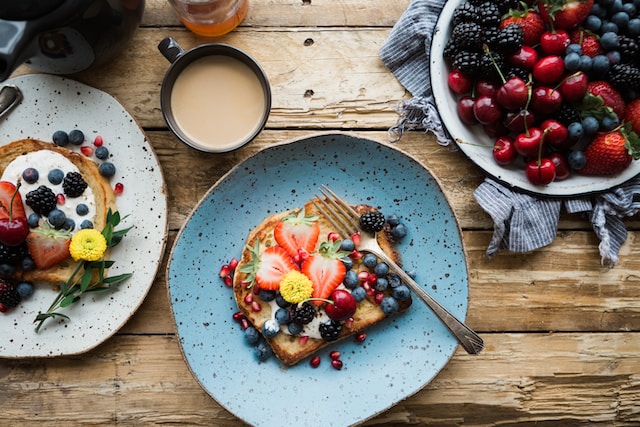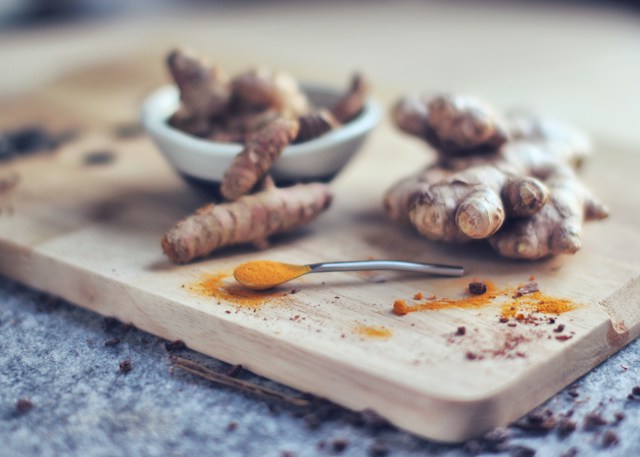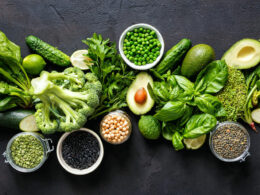Research has dramatically changed our thinking about the role of diet in both the prevention and treatment of cancer. Studies have shown that certain dietary elements may help promote the development and spread of malignancies, while others slow and block tumor growth. Researchers estimate that at least 30% of all cancers in Western countries may be related to diet, especially one in high fat and processed foods. Many of these cancers may be prevented with dietary changes, for example eating cancer-fighting foods.
A qualified dietitian should be part of any cancer treatment team because both the decease and its treatment demand good nutrition as an air to recovery.
Weight loss is common among those with cancer. Most experience a loss of appetite as a result of the cancer itself. Depression and pain may lessen any desire to eat.
Cancer treatments, especially radiation and chemotherapy, curb appetite and produce nausea and other side effects. Surgery, too, can affect appetite and requires highly nutritious diet for healing and recuperation.
Nutrition and cancer connection
Anyone can use the following recommendations to protect themselves against cancer. For those under treatment for cancer, nutritional needs may vary. Below we will identify top cancer-fighting foods, but consult a doctor or dietitian to personalize your diet for your needs.
Eat more fruits and vegetables. Studies associate a diet containing ample amounts of fruits and vegetables with a reduced risk of many deadly cancers. Foods such as apples, berries, and broccoli contain bioflavonoids and other plant chemicals, dietary fiber, folate and antioxidants, beta-carotene and vitamin C.
Reduce fat intake. Numerous studies link a high-fat diet and obesity with an increased risk of cancers of the colon, uterus, prostate, skin (including melanoma, the most deadly form of skin cancer) and breast. Experts stress that no more than 30% of total calories should come from fats, and many advocate a 20% limit on fat calories. A few simple dietary changes can help lower fat intake: choose lean cuts of meat and trim away all visible fat, eat vegetarian dishes several times a week, adopt low-fat cooking methods such as baking and steaming, and limit use of added fats such as butter and oils.
Eat more fiber. Increased intake of fiber may protect against certain types of cancer, such as colorectal cancer. A high-fiber, low-calorie diet also protects against obesity and increased risk of cancers linked to excessive body fat.
Limit processed food. People who eat large amounts of smoked, pickled, cured, fried, charcoal-broiled, and processed meats have a higher incidence of stomach and esophageal tumors. Smoked foods contain polyaromatic hydrocarbons that are known carcinogens. The salt in pickled foods can injure the stomach wall and facilitate tumor formation. NItrites, commonly found in bacon, hot dogs, and processed meats, can form nitrosamines, or established carcinogens. However, consuming these foods along with good sources of vitamin C and vitamin E reduces the formation of nitrosamines.
Consult with a doctor before using supplements. ALthough it seeds wise to take supplements to prevent cancer, studies have established that high doses of them can actually increase damage caused by free radicals. For those who are undergoing cancer treatment, it’s advisable to consult a physician or a dietitian. Different diagnoses and conditions require different levels of supplementation, if any at all.
Approach alternative therapies with caution. There is no scientific evidence to support the efficacy of consuming Japanese maitake, Chinese herbs, blue-green algae, or shark cartilage extracts to prevent or treat cancer.
Top cancer-fighting foods
Dietary guidelines must take into account the stage and type of malignancy. In most cases of early or localized cancer, people are generally advised to follow a diet that is low in fat, high in whole grain products and other starches, and high in fruits and vegetables. Fats, especially from animal sources, are discouraged because they are believed to support tumor growth. In contrast, can-fighting foods such as fruits and vegetables contain an assortment of natural plant chemicals that are thought to retard the growth and spread of cancers. Protein is essential because it helps the body repair tissue that has been damaged during treatment of the decease and helps wound healing. Apples, berries, broccoli and other cruciferous vegetables, and citrus fruits contain flavonoids, which act as antioxidants. Flavonoids are also thought to prevent DNA damage to cells.
While no foods can cure cancer, researchers have identified several cancer-fighting foods that seem best able to fight cancer:
Lean meat, low-fat dairy products, eggs, fish and shellfish, tofu and other soy products provide much-needed protein and zinc. Because many people with cancer find that red meat takes on an unpleasant metallic taste, other sources of protein are best.
Tomatoes and tomato products contain lycopene, which has been found to have protective effects against prostate cancer.
Onions and garlic contain sulfur compounds that may stimulate the immune system’s natural defenses against cancer, and they may have the potential to reduce tumor growth. Studies suggest that garlic can reduce the incident of stomach cancer by factor of 12.
Green tea contains EGCG, a catechin that may help fight cancer in three ways: it may reduce the formation of carcinogens in the body, increase the body’s natural defenses, and suppress cancer promotion.
Brazil nuts, seafood, some meats and fish, bread, what bran, wheat germ, oats, and brown rice are the best sources of selenium, a trace mineral that is another powerful cancer-fighter.
How to eat better when you have cancer
In many instances, loss of appetite, nausea, and other eating problems can be dealt with by changing daily habits and routines. The following tips have worked for many people:
- Plan your major meal for the time of day when you are least likely to experience nausea and vomiting. For many cancer patients, this is in the early morning. Otherwise, eat small, frequent meals and snacks throughout the day.
- Let someone else prepare the food for you – cooking odors often provoke nausea. Food that is served cold or at room temperature gives off less odor than hot food.
- If mouth sores are a problem- eat bland, pureed foods – for example, custards, rice and other puddings made with milk, and eggs, porridge, and blended soups. Avoid salty, spicy, or acidic foods. Sucking on zinc lozenges may speed the healing of mouth sores.
- Get dressed to eat with others in a pleasant social atmosphere and make meals visually attractive.
- To overcome nausea, try chewing on ice chips or sucking an a ginger candy or sour lemon drop before eating. Sipping flat ginger ale or cola may also help.
- Rest for half an hour after eating, preferably in a sitting or upright position. Reclining may trigger reflux, nausea, and vomiting.
- Pay extra attention to delta hygiene. If mouth sores hinder tooth brushing, make a baking soda paste and use your finger and a soft cloth to gently cleanse the teeth. Then rinse the mouth with a weak solution of hydrogen peroxide and baking soda. Diluted commercial mouthwashes freshen the breath, but avoid full-strength products that can further irritate sores.
- If a dry mouth makes swallowing difficult, liquefy foods in a blender or moisten them with low-fat milk, sauces, or gravies.
- If diarrhea is a problem (as is often the case during chemotherapy), avoid fatty foods, raw fruits, whole grain products, and other foods that can make it worse. Instead, eat bland, binding foods, such as rice, bananas, cooked apples, and dry toast.
- A few slices of a colorful fruit give visual appeal to a bowl of oatmeal. A colorful napkin and bud vase perk up a tray of food.
Lifestyle changes when you have cancer
Along with healthy diet, breaking high-risk habits and loving a healthy lifestyle can help shore up your defenses against cancer.
Stop smoking. More than any other lifestyle factor, smoking increases risk of cancer. In addition to lung cancer, smoking is strongly associated with cancers of the esophagus, mouth, larynx, pancreas and bladder and an increased risk breast cancer.
Limit your alcohol intake. Heavy alcohol use is linked to increased risk of cancers of mouth, larynx, esophagus, and liver. Excessive alcohol consumption hinders the body’s ability to use beta-carotene, which appears to protect against these cancers. Alcohol can also deplete reserves of folate, thiamine, and other B vitamins, as well as selenium, all crucial nutrients in protecting the body.
Exercise. People who engage in moderate to vigorous physical activity have a lower risk of developing certain cancers, such as those of the breast, colon, and endometrium. Physical activity also helps maintain a healthy body weight and prevents obesity, which has been linked to a number of cancers.
Summing up
Making changes to your diet and lifestyle can help preventing your body against various cancers. Switching to more healthy diet when you have cancer can help your treatment and over-all healing of your body. Most of cancer-fighting foods are not only nutritious but also have been proven to slow spreading malignant tumors. In general, plant-based foods reduce risk of cancers. Certain foods in your menu can help in preventing nausea and vomiting, relieving pain during your healing journey. After all, we all should exercise more and quit unhealthy habits that are proven to cause oncological deceases.







